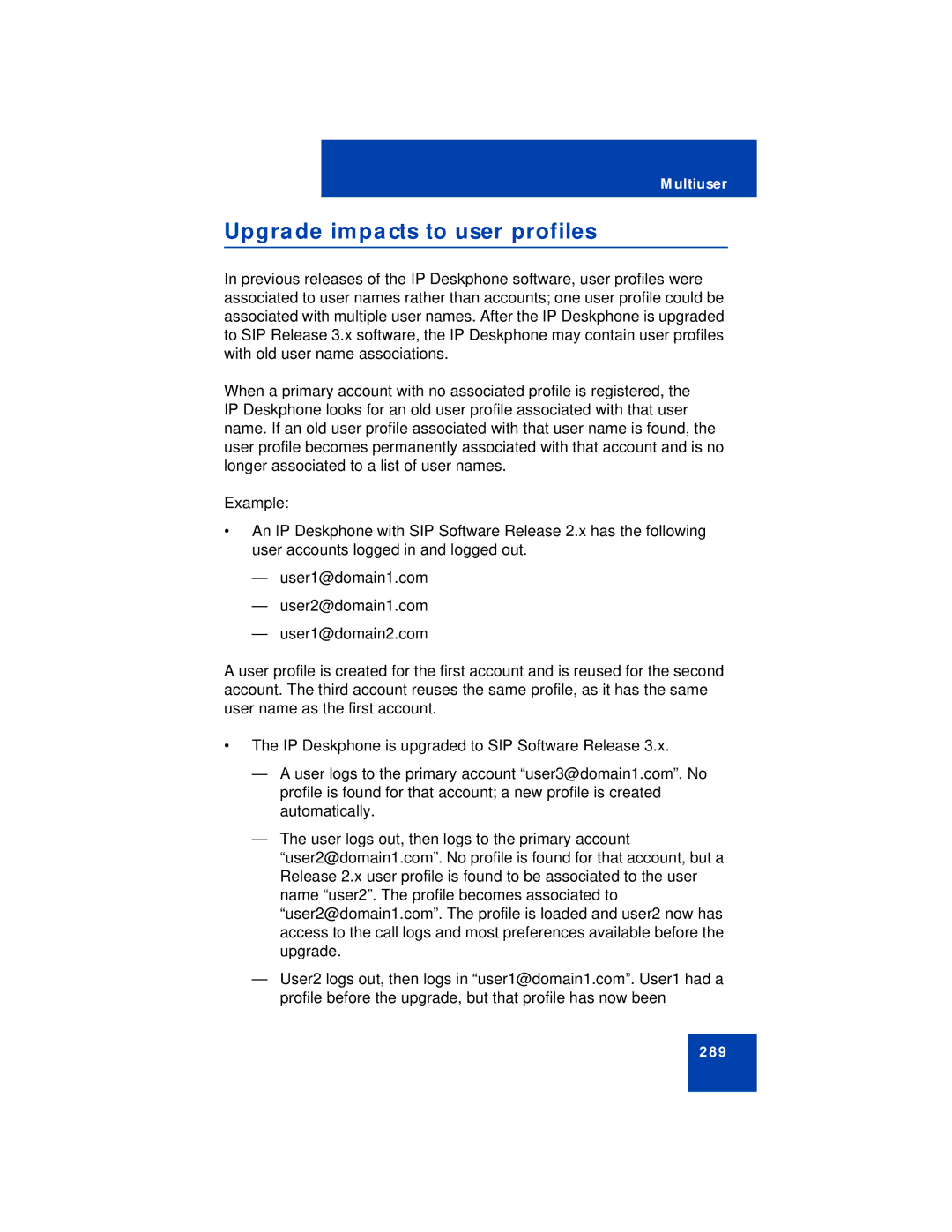
Multiuser
Upgrade impacts to user profiles
In previous releases of the IP Deskphone software, user profiles were associated to user names rather than accounts; one user profile could be associated with multiple user names. After the IP Deskphone is upgraded to SIP Release 3.x software, the IP Deskphone may contain user profiles with old user name associations.
When a primary account with no associated profile is registered, the IP Deskphone looks for an old user profile associated with that user name. If an old user profile associated with that user name is found, the user profile becomes permanently associated with that account and is no longer associated to a list of user names.
Example:
•An IP Deskphone with SIP Software Release 2.x has the following user accounts logged in and logged out.
—user1@domain1.com
—user2@domain1.com
—user1@domain2.com
A user profile is created for the first account and is reused for the second account. The third account reuses the same profile, as it has the same user name as the first account.
•The IP Deskphone is upgraded to SIP Software Release 3.x.
—A user logs to the primary account “user3@domain1.com”. No profile is found for that account; a new profile is created automatically.
—The user logs out, then logs to the primary account “user2@domain1.com”. No profile is found for that account, but a Release 2.x user profile is found to be associated to the user name “user2”. The profile becomes associated to “user2@domain1.com”. The profile is loaded and user2 now has access to the call logs and most preferences available before the upgrade.
—User2 logs out, then logs in “user1@domain1.com”. User1 had a profile before the upgrade, but that profile has now been
289
